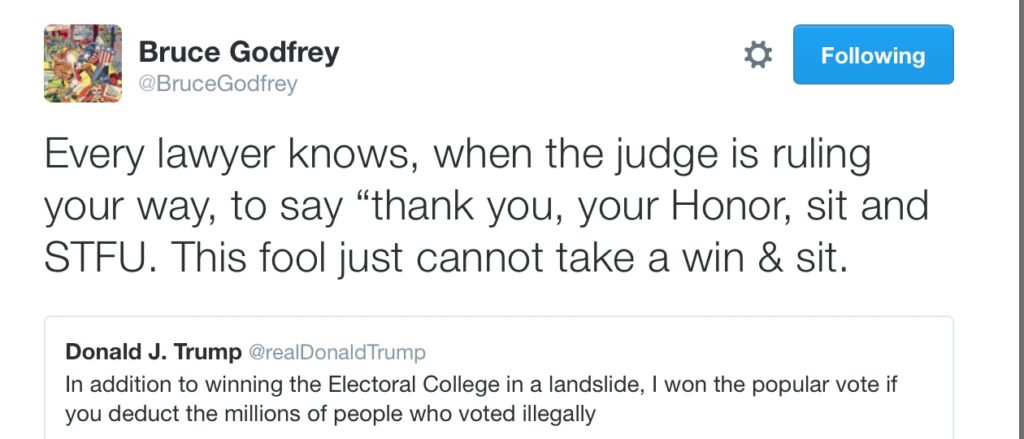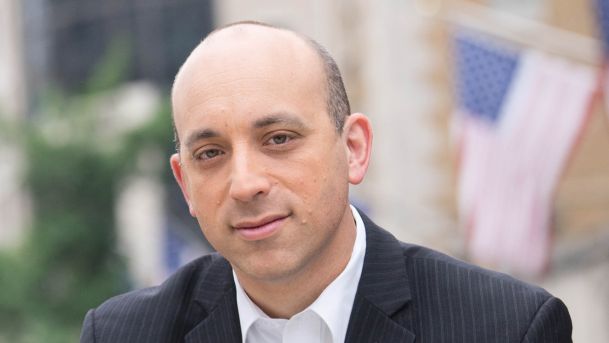 Yesterday I started a retrospective on 10 years of law blogging with some of my favorite posts. In this second of two installments I have more, culled from the 1,400+ that I’ve done.
Yesterday I started a retrospective on 10 years of law blogging with some of my favorite posts. In this second of two installments I have more, culled from the 1,400+ that I’ve done.
But it’s worth noting a significant change that’s occurred since I started in 2006. While there may be many blogs, there seem to be fewer and fewer that actually interact with each other.
Or at least that’s seems to be true from the consumer end of the law: personal injury, criminal justice, immigration and the like. Many are little more than adjuncts to websites that are stuffed with keywords in the hopes that Google will find them, and then clients will, and they act like islands unto themselves.
The death of the legal blogosphere has long been discussed. Back in the “good old days” bloggers would be linking like crazy to each other and they built upon, or rebutted, the arguments and assertions of others.
Today? Twitter and Facebook seem to have taken a lot of the steam out of the blogosphere, as a short Facebook update or tweet now often takes the place of a blog posting with any depth. It’s fast and it’s easy.
It’s that speed and ease, of course, which also lends itself to less thought and more vacuous comments and conduct.
I’m still at it here, though I do so only when I have the time. I stand as guilty as others of taking things I might have blogged about, and simply shooting off a tweet that’s then quickly lost to the electronic ethers. As time allows, I hope to reverse that practice in the coming year.
One further note before the postings: I’ve tried hard to shy away from political posts and stick with my core issues. Tort “reform” obviously crosses that boundary.
Of late, however, there have been many Trump posts, as he acts like a one-man bar exam. Everything he does seems to cause legal issues. Some examples that I’ve addressed are: Supreme Court nominations, defamation, sanctions, labor law, and client-attorney privilege. I have no expectation that will change.
Without further ado, a few more of my all-time favorites:
———–
Scalia: “There Is No Right to Secede” — This had nothing to do with personal injury law, of course. But the story of how the late Justice Scalia wrote a letter to my brother, which then went viral 3+ years later, was really, really, really fun. Really.
Does the Tea Party Believe in Conservatism or Tort “Reform”? (8 Questions) — Some people use politics to further an ideological agenda. Some use it so just get whatever the hell they want. This post sits at the intersection of the two.

I think I’m required by law to use this photo when discussing April 1st postings.
On Becoming the White House Law Blogger — It’s been over six years since I got that April 1st appointment and the New York Times ran with it based on “blogospheric chatter.” Having that much fun shouldn’t be legal.
Outsourcing Marketing = Outsourcing Ethics (5 Problems With Outsourcing Attorney Marketing) — Legal marketing is inextricably intertwined with legal ethics, so if you outsource your marketing you have outsourced your ethics and reputation. Lesson: Don’t outsource you ethics and reputation.
Study Says Texas Medical Malpractice Tort “Reform” Is A Bust (Is Congress Listening?) — There are 86 posts here that are tagged with Tort “Reform.” This is one of them. Because I’m a sucker for using data and analytics instead of anecdotes to prove a point.
Are FindLaw’s “Blogs” Tainting Its Clients, Commentators and the Profession of Law? — FindLaw printed crap, using the same name of my blog. And I called them out on it. Big time.
Barney Speaks Out (An Interview with the First Pooch) — After George Bush’s pooch bit a reporter, I did a a little legal analysis and then decided, what the hell, why not interview the dog? But of all the things that have happened to me as a result of this blog, being quoted on the editorial page of The Economic Times of India about the initial bite has to be the most unexpected. You can’t make this stuff up. Well, you can make parts of it up.
Joseph Rakofsky – I Have An Answer for You — From the first time I was sued (along with many other law bloggers), wherein I told the plaintiff to “Go shit in a hat and pull it down over your ears.” It’s a type of legalese.
Judge Rips Doc for “Huge Lie”; Perjury Prosecution Possible; Victims May Number in Thousands — When a judge ripped Dr. Michael Katz for what the judge called a “huge lie,” it led to this post and then a 7-part series on defense medical exams along with my call for a state investigation into insurance fraud perpetuated by the insurance industry itself.
Shooting the Messenger (I’ve Been Sued Again) — Reporting that prior story of the judge repeatedly calling Dr. Michael Katz a liar got me sued, for the second time. But you know what? Reporting on what a judge says is fair game. And yes, the suit was quickly chucked out by the court. Same as the first one. Lesson: Don’t bring a stupid suit against me — I will humiliate you.
About That Aunt Suing An 8-year-old — A story that went viral for no good reason other than a reporter wanting to write a skewed article about it for page views.
Death by Red Bull, An $85M Lawsuit, And The Money Shot – One of my pet peeves is lawyers that do stupid things for publicity that have the effect of poisoning the jury pool. The comments, by the way, are priceless.
New York Needs More Robust Anti-SLAPP Legislation — My op-ed in the New York Law Journal regarding frivolous defamation suits, and threats to bring them, that have the effect of stifling free speech.
That’s it for now, unless I come back with Part 3 of this two-part series. Stranger things have certainly happened.




 People in mixed families — some of whom voted for Clinton and some of whom voted for Trump — may be dreading Thanksgiving and seeing certain relatives.
People in mixed families — some of whom voted for Clinton and some of whom voted for Trump — may be dreading Thanksgiving and seeing certain relatives.



